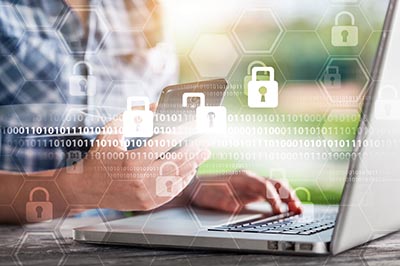
Cleaning up your digital life should be high on those resolution lists. Users share vital personal and financial data with numerous service providers. Such data exposure is necessary for maintaining a digital lifestyle through apps or websites. However, the connectivity we enjoy daily comes at a price, usually our privacy. The more information you leave behind, the easier it is for anyone with the means to track you.
For instance, a password manager and two-factor authentication provide a certain degree of protection. However, you should close online accounts you stopped using or delete apps you no longer need.
Such a relatively simple yet effective step shields you against unexpected account takeovers or older passwords leaking. However, these are only a few examples of strategies you should adopt.
Here are some smart ways to recharge your digital lifestyle in 2022.
Reset and recycle devices you no longer use
You may have electronic devices you no longer use—tablets, storage devices, laptops, cameras, and more. You should factory-reset all of them (when possible). After that, look for a place to recycle or donate them. Your old devices, especially computers, might have enough life left in them.
However, while selling or donating your device is an excellent choice, there are steps to take before giving it to others. You should disable any features and delete apps that could link to you. One crucial mistake is forgetting to disconnect from iCloud or Apple ID.
Delete accounts you don’t use anymore
The more accounts you have, the more risks there are. Regular users might have dozens of accounts, especially if they reap all the benefits of their digital lifestyle. The chances are that you have not logged in to some of your accounts for years. Unfortunately, they still contain information about you that might be breached or exchanged between companies.
You should take the time to delete these accounts to make sure that you aren’t leaking any data into the world outside. What you had posted years ago as a rebellious teenager may come back to embarrass you when you have established yourself in your professional life. Therefore, take the time to delete accounts you no longer use, keeping open only those windows you prefer the world to see you through.
Refresh the home network
The home network is often a common cyber security weak point. The first thing you should do is avoid continuing with the default username and password. Furthermore, change these credentials to something difficult to guess.
Speaking of networks: avoid connecting to free Wi-Fi. Unfamiliar networks might not be adequately secured, leaving your activities and data exposed to interception. Therefore, it is best to connect to those networks you know to be secure. If you are keen on connecting to free Wi-Fi to save cellular data, the following section reveals the possible salvation.
Protect communications and data online
Install a Virtual Private Network (VPN) to connect to any network you want safely. A VPN fills the security gaps of many unsecured networks, boosting their reliability. For one, traffic encryption is one of the common downsides of free Wi-Fi networks.
Again, using a VPN also has many other benefits. It hides your IP address, preventing web entities from extracting your approximate location. If you wish to start 2022 more anonymously, a VPN is the way to go.
Clean up your inbox
Do you keep your inbox clutter-free, or are you among those who leave all emails they have received? You don’t need to clean the junk manually after combing through it. All you need to do is take a few minutes to automate the cleanup process.
You’ll find the search filter helping you locate emails by category, size of attachments, content, and more. You’ll only have to log into your email through your web browser and then go to the search bar.
You can delete messages from senders you no longer want to hear from by simply searching for the email address in the search bar. Once you have located the email ids of the unwanted senders, you can bulk delete all messages you have received from them.
Conclusion
Your online security and privacy are enhanced when you clean up your digital life. Doing so ensures that no online information can be traced back to you, causing a privacy breach.
Make it a point to recycle and reset devices you no longer use. Get rid of unused accounts and spruce up your home network. Don’t forget to clean your inbox and use a VPN to hide your tracks. Take the time to clean up your digital life and boost your security and privacy.










